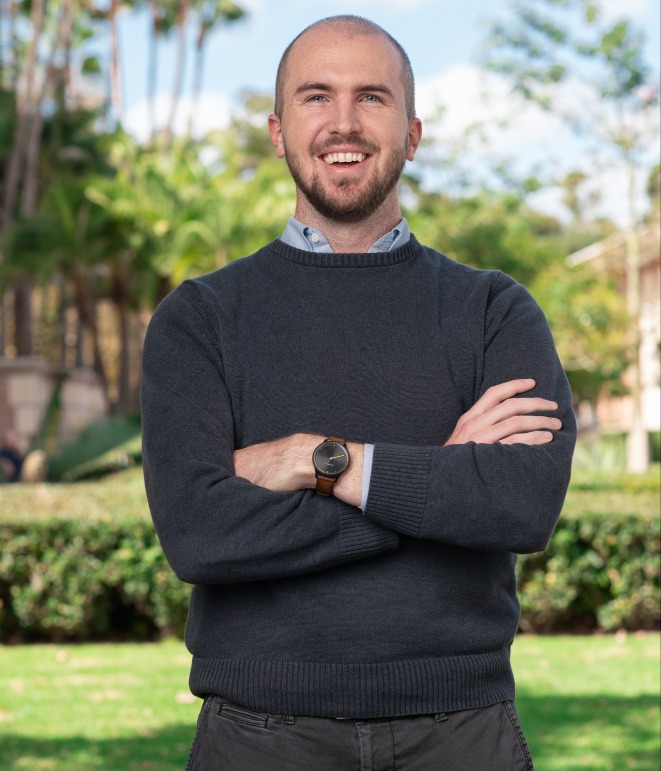
Study Finds Power Shifts at Work Can Boost Employee Energy and Productivity
New research shows natural ups and downs of workplace influence can sharpen focus, fuel motivation, and support goal pursuit.
USC Marshall Professor Receives Prestigious NSF CAREER Award
USC Marshall Professor Receives Prestigious NSF CAREER Award
NSF recognizes Assistant Professor Andrew Daw for his research on developing more efficient service models.

Andrew Daw, the Dean’s Assistant Professorship in Business Administration and assistant professor of data sciences and operations, was awarded the National Science Foundation’s (NSF) CAREER Award — one of its most prestigious honors for early career faculty. The award “recognizes early-career faculty who have the potential to serve as academic role models in research and education and to lead advances in the mission of their department or organization.”
Daw, who also received the 2025 USC Marshall Dr. Douglas Basil Award, a 2024 Teaching Excellence Award, and a 2024 Chair in Research Excellence, was honored by the recognition and acknowledged the support of his colleagues in the Marshall community.
“There are some incredible scholars both within Marshall and within USC that have received this honor, so that’s very humbling,” Daw said. “I would not have won this award this year or any year if I did not have such fantastic colleagues around me.”
Daw’s CAREER Award includes a $525,009 five-year grant to support his research. The assistant professor is analyzing the stochastic models of customer-provider interactions in the service industry. Unlike previous models, Daw and his research team aim to rethink traditional “queueing theory” models within service system management. The assistant professor will build a new approach from the ground up, examining individual interactions and increasing efficiency across industries.
This new interaction-level technique for modeling and managing services aims to shift the scope from the macro to the micro. According to Daw, preliminary results of this research suggest that this new perspective can both open new ways to improve service quality and identify potentially overlooked pitfalls of exclusively viewing the service as a system.
“The inherent questions we’re trying to answer: How do we waste less time, make people wait less, and deliver better service experiences all without committing any extra resources?” Daw said. “How can we deliver a better experience without actually having to build out a bigger, more expensive service enterprise?”
The education component of Daw’s proposal is rooted in the development of his USC Marshall course BUAD 313: Advanced Operations Management and Analytics. Through the advent of artificial intelligence, Daw strives to make subjects like operations management (OM) and operations research (OR) accessible to broader audiences. As Daw explains, the new approach reimagines the curriculum behind OM and OR courses, placing modeling at the forefront and making it unnecessary for students to have prior coding experience to learn the technical content.
“By expanding access to this type of model-based quantitative reasoning decision-making, we’re advancing, as the NSF likes to call it, scientific advocacy and scientific-based decision-making in the broader public,” Daw said.
I would not have won this award this year or any year if I did not have such fantastic colleagues around me.
— Andrew Daw
Assistant Professor of Data Sciences and Operations
RELATED
Study Finds Power Shifts at Work Can Boost Employee Energy and Productivity
New research shows natural ups and downs of workplace influence can sharpen focus, fuel motivation, and support goal pursuit.
Artificial Intelligence Can Help New CEOs Drive Innovation
New research shows AI can be a strategic catalyst for innovation and creativity, especially during leadership transition.
Quoted: Nathanael Fast in CNET
Fast expressed trepidation over the rise of Sora, OpenAI's video generator.
Quoted: Lars Perner in Newsweek
As holiday shopping ramps up, Perner explains the implications and concerns of AI toys from China.
Op-Ed: Sharna Wiblen in HR Executive
Wiblen writes that although HR has access to more technology, the accumulation may undermine talent strategy.